Russian journalist Mikhail Belyaev has published an article about the changes in the consciousness of Armenian citizens after the Patriotic War in Karabakh.
Report presents this article referring to vestikavkaza.ru:
The Russian newspaper ‘Argumenti i Fakti’ (AiF) has published an article under the heading ‘Sorry, Russia! Won’t you leave us? Armenians no longer want to be friends with the West’, dedicated to the moods and expectations from Russia prevailing in Yerevan. Correspondent of the newspaper Georgy Zotov shared his impressions of numerous conversations with residents of the Armenian capital supposedly awakened from ‘pro-Western intoxication.’ Was what happened to them a clouding of mind or a symptom of a long and prolonged illness?”
Karabakh for a bottle of cognac and swindlers from the West
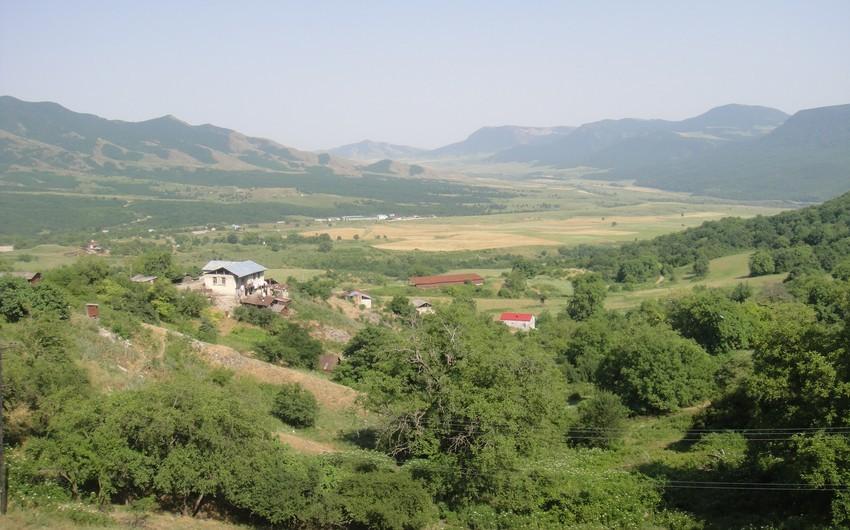
“It may seem ridiculous.. but I really thought that the US would stand up for us,” 70-year-old literature teacher Tamraz Harutyunyan shrugs. “They seemed angry that Turkey supported Azerbaijan, condemned it. I even bet on a bottle of cognac with my neighbor that the Americans would land troops in Karabakh... and lost. Sorry, I’m an old man, I succumb to propaganda... it seemed to me that the West was worried about us,” Georgy Zotov quotes an elderly Armenian. Young programmer Eduard Garegyan complains to a journalist that Americans and Europeans hoodwinked Armenians. Literally all of the respondents complain about the West, because it withdrew from any participation in the escalation of the conflict in Nagorno-Karabakh, watching the Azerbaijani army tearing Armenian troops apart, ‘like in a zoo.’
The ‘gray wolf’ fairytale
The AiF article is rich in vivid allegories drawn from street conversations. The citizens of Armenia, interviewed by the newspaper, sometimes call Turkey a ‘cancerous tumor’, or equate the Turks with wolves, who are just waiting for the right moment to attack the Armenians, so much so that their bones should ‘crunch on their teeth.’ Armenia is caught sandwiched between the Turkish and the Azerbaijani armies. The residents of Yerevan don’t mention that the Turkish Armed Forces didn’t take part in either the first or the last Karabakh wars, and that the Armenian-Turkish border is reliably protected by Russian border guards.
Turkey and Azerbaijan through the eyes of Armenian revenge-seekers

Attempts to present Turkey, but by no means their own army and their unconstructive policy of recent decades, as responsible for Armenia’s defeat in Karabakh is an established trend in the Armenian information field. During the war, Nikol Pashinyan stated in his interviews to Western media that Armenia is the last Christian bastion on the way to the ‘neo-Ottoman expansion of Erdogan’s Turkey’ into Europe. Probably, Pashinyan spoke figuratively, because geographically Armenia doesn’t divide Turkey and Europe in any way. For the Russian audience, the Armenian fighters of the information front emphasize that Turkey and Azerbaijan have some plans to create a mythical ‘Greater Turan.’ Here, however, the Armenian side overdid it with a dose of propaganda. As a result, Russian Foreign Minister Sergey Lavrov openly stated at one of the press conferences that he doesn’t believe that Turkey is pursuing the goal of creating a ‘Greater Turan’ and doesn’t think that the countries that were part of the USSR could support such an idea.
Neither Karabakh nor Eastern Turkey
However, in terms of debunking the myths about the ‘great powers of the past,’ Armenia itself failed to complete the task. Back in 2011, answering a student’s question about what borders Armenia will have and ‘whether Western Armenia and Mount Ararat will be returned,’ the then President of Armenia Serzh Sargsyan replied: “Everything depends on your generation. My generation, I think, fulfilled its commitment, when in the early 1990s it was necessary to protect a part of our homeland from the enemy - Nagorno-Karabakh - and we were able to do it...”
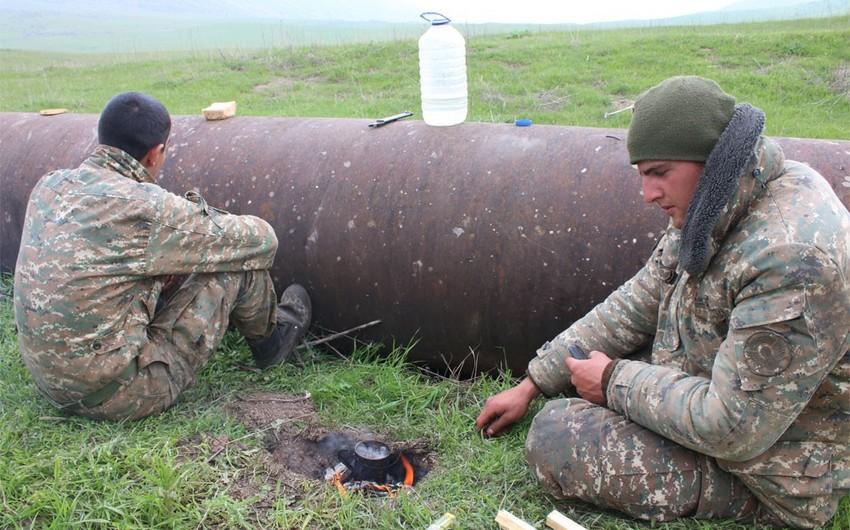
Ten years have passed since then, and today Armenia, at the highest level, claims to revive the Treaty of Sevres of 1920. According to this agreement, which never entered into force and was not ratified by the parties, Turkey, as proposed by US President Woodrow Wilson, was to grant to Armenia a territory of more than 100,000 square kilometers. Last year, in connection with the 100th anniversary of the Treaty of Sevres, Yerevan hosted a scientific conference, at which Prime Minister Nikol Pashinyan said the treaty established ‘not only peace, but also justice in Western Asia.’ Armenian President Armen Sarkissian went even further, calling the Treaty of Sevres ‘a legal international de facto document in force.’ The productivity of this line of behavior is quite easy to assess – Armenia did not win back “Western Armenia and Mount Ararat”, choking in the economic blockade, from the well-armed 80-million Turkey, but lost control over Karabakh as a result of the war with Azerbaijan, along with thousands of soldiers and weapons worth billions dollars.
To understand and to forgive?
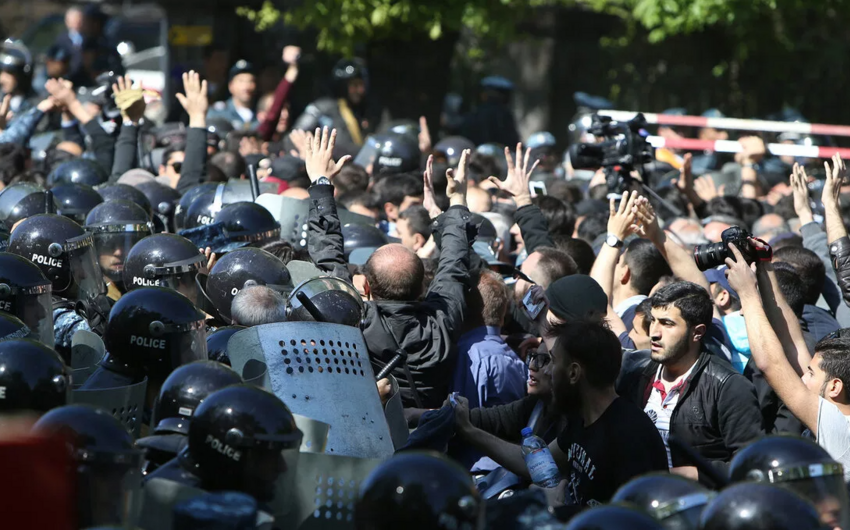
There is only one way out for Armenia, as it follows from the answers of the Armenians surveyed by the AIF - the refusal to flirt with the West and deepening integration with Russia, up to the loss of already truncated sovereignty and joining the Russian Federation. “If we had not become part of Russia in 1920, the Armenians would have been termined by the Turks. The only period in history when the Armenians lived without massacres was within the USSR!” says Yerevan resident Aram Gugaryan.
According to those who are now gathering on Baghramyan Avenue, Moscow, as the famous Russian comedian of Armenian origin Misha Galustyan said, should 'understand and forgive' the small and devastated Armenia, which has ambitions inadequate for its dimensions and resources.
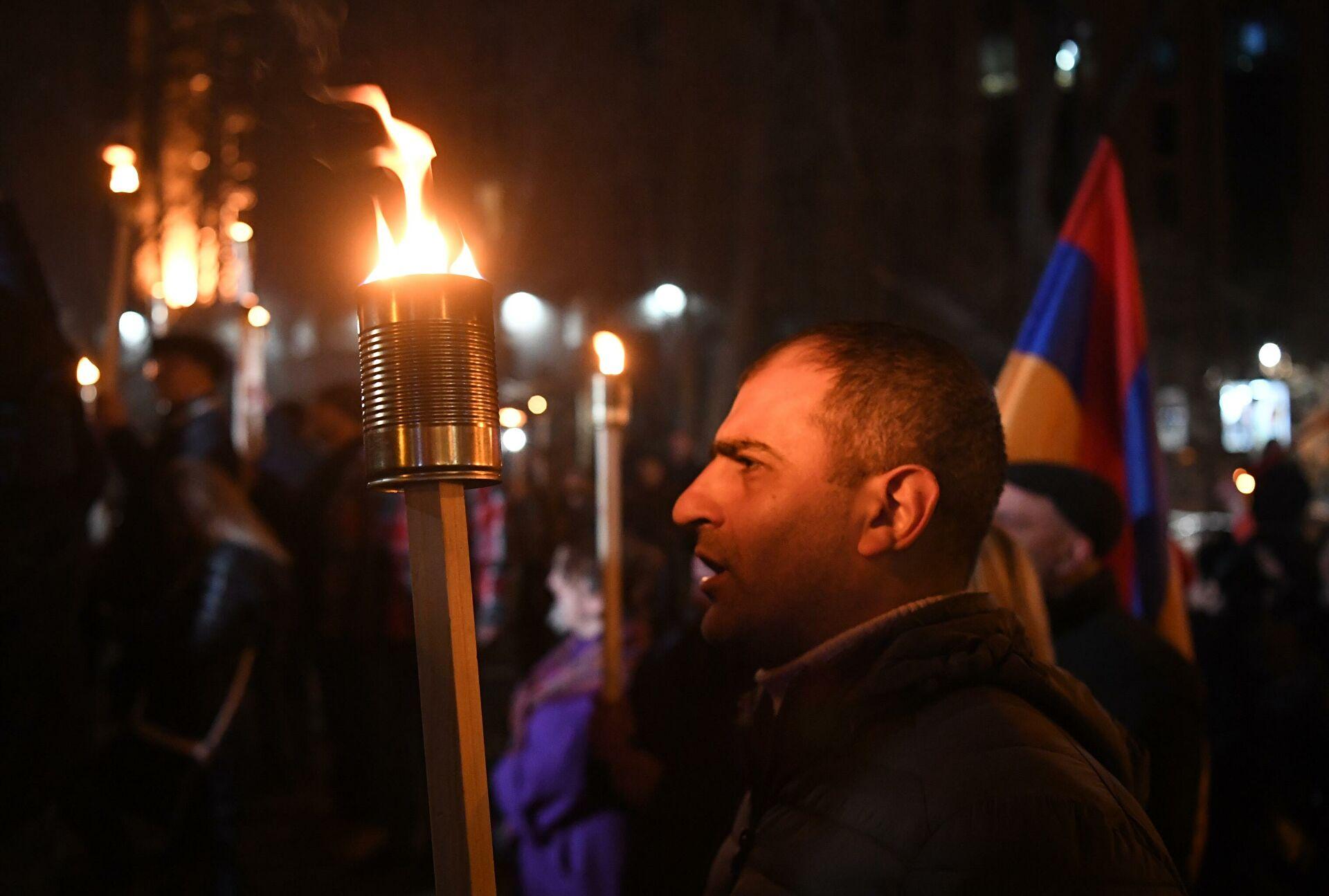
Will the Armenian catharsis happen?
Talking about Russia as the savior of a lost but repentant Armenia, which has gone astray (from the pro-Russian path) due to the immaturity of state thinking and the insidious intrigues of the omnipresent George Soros, will probably impress some of the readers. But real politics, of which the Kremlin is a consistent supporter, has no emotional dimension. Moscow has serious questions to Yerevan about the activities of terrorist and Russophobic parties like Sasna Tsrer, which freely organize crowded torchlight processions in the center of Yerevan. The question of the glorification of Nazi criminals in the person of Garegin Nzhdeh has not been removed. The ideological bonds of Armenia fed by tsekhakronism, which were introduced into society during the rule of Robert Kocharyan and Serzh Sargsyan, and later supported by Nikol Pashinyan, are by default incompatible with the Armenian-Russian allied relations.

In the best traditions of the Maidan - a torchlight procession of Armenian nationalists in Yerevan on February 28, 2021
The Russian side has accumulated questions about the active role of the Armenian diaspora of the West in the management of the state of Armenia, while lobbyists of the same diaspora organizations are simultaneously carrying out anti-Russian activities. It is enough to get acquainted with the activities of the congressmen working for the Armenian National Committee of America. It is also upsetting that the Armenian Foreign Ministry didn’t say a word about the anti-Russian statements of Armenian Ambassador to the Netherlands Tigran Balayan, who supported the imposition of sanctions against the Russian Federation over the case of Alexei Navalny. In an interview with the Dutch publication Weekblad Elseveir, Balayan referred to anti-Russian ‘Navalny sanctions’ as a worthy example of a precedent, instead of condemning their injustice and unfoundedness.
If the Armenian society makes real efforts to revise the nationalist ideology imported from the West, in the DNA of which anti-Russian and anti-Turkish genes are simultaneously embedded, such a move will show how sincere the confession of street respondents from Yerevan is. Where was Armenia’s gratitude to Russia, and would it have appeared if Armenia hadn’t lost control over Nagorno-Karabakh - a region that, as President Vladimir Putin noted, belongs to Azerbaijan?
In Orthodoxy, the Sacrament of Penance isn’t performed with a conscious concealment of sins or the absence of sincere repentance before God. It is better seen from the high towers of the Kremlin whether today’s repentance of Armenia is sincere, or it is caused by latent revanchism and dreams of a new bloodshed in Nagorno-Karabakh. There is still no trace of Yerevan’s actions to restore regional stability, trust and multilateral cooperation following the trilateral statement of Nov. 10, 2020, Mikhail Belyaev writes.


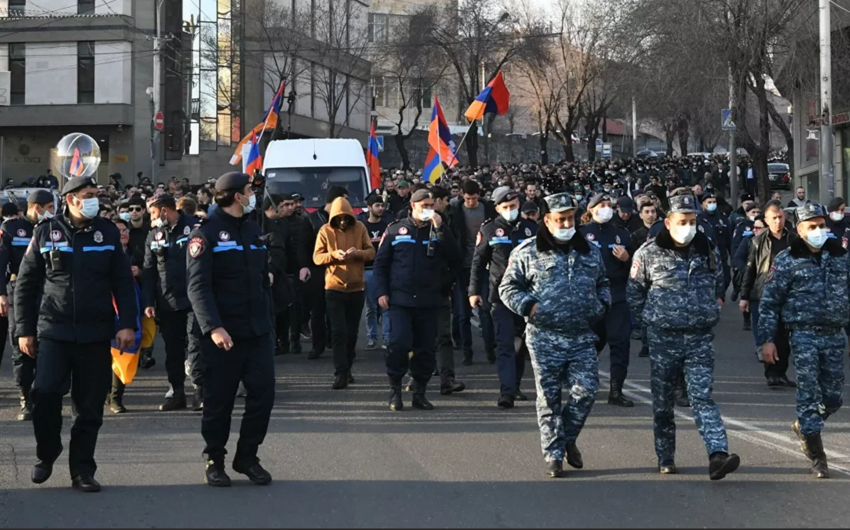 https://static.report.az/photo/8796030e-a59e-33e1-abbe-ca89517818d8.png
https://static.report.az/photo/8796030e-a59e-33e1-abbe-ca89517818d8.png

